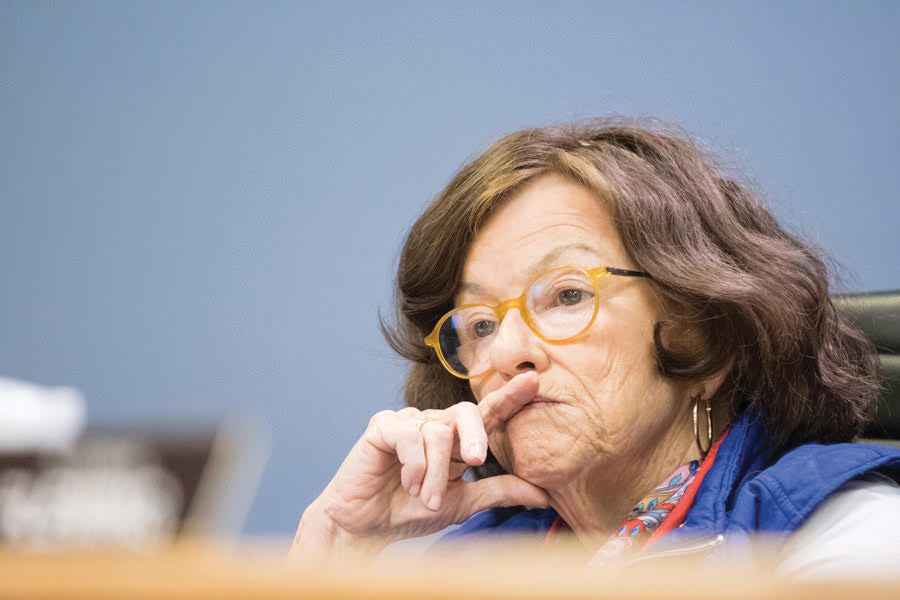City Council discusses potential amusement tax changes
Daily file photo by Colin Boyle
Ald. Ann Rainey (8th) at a City Council meeting. Council discussed possible changes to the city’s amusement tax.
January 28, 2020
City Council discussed possible changes — including removing the nonprofit exemption or establishing a seat-number minimum — to the amusement tax, a tax on entertainment events.
Aldermen also explored possibly adding more exemptions, adding more types of events for taxation — like virtual reality entertainment — or any combination of these.
Aldermen emphasized the need for diverse revenue sources, saying the amusement tax is an important source of income for the city. In the 2018-2019 fiscal year, amusement taxes yielded $655,744 of revenue, more than double what was expected, according to city documents. The projection for the 2019-2020 fiscal year amusement tax revenue is $430,000, while the budget increased based on the fact that the tax increased and the prospective events that will be hosted at the Welsh-Ryan Arena.
“People in Evanston who love the arts, and people who come from outside of Evanston who love the arts, while they might be frustrated, I would hope that they would understand that this is going to the financial health of our city,” Ald. Cicely Fleming (9th) said. “We really want to be able to keep the income diversity that we have in our city.”
As the tax stands, Northwestern events hosted at Welsh-Ryan would not be subject to the amusement tax because the University is a nonprofit. For-profit events at Welsh-Ryan, which City Council approved in November, are currently subject to the tax. Removing the nonprofit exemption would allow the city to tap into revenue generated by University-hosted entertainment events.
However, some residents objected to the potential changes. Toby Sachs, vice-chair of the Evanston Arts Council, said that the arts council had voted unanimously against the removal of the nonprofit exemption.
“We understand there may be interest in including stadium events in the amusement tax, but ask you to be careful of unintended consequences,” Sachs said.
He went on to list some of the organizations whose revenues could be affected, such as Northlight Theatre, Mudlark Theater, Evanston Symphony Orchestra, Fleetwood-Jourdain Theatre, The Actors Gymnasium, and the North Shore Choral Society.
Diana Hamann, owner of Wine Goddess, expressed concerns about how the proposed changes could affect small-business owners, particularly in addition to the burden of higher liquor taxes and licenses than surrounding areas.
Most of the aldermen stressed that small businesses who might host events that are unrelated to their main source of revenue should not be taxed. They similarly expressed their support for maintaining the nonprofit exemption, but grappled with how to exclude Northwestern.
“I want to make certain, and I don’t know how to say this so that it’s legal, but any activity that takes place at Northwestern under the guise of the approvals we just gave… that’s got to be taxed,” Ald. Ann Rainey (8th) said,“and (if) that can’t happen, then I think we ought to repeal their ability to have those events.”
City staff will form a new proposal based on the discussion surrounding the changes to the tax and return to City Council around March or later.
Email: [email protected]
Twitter: @_grantli












